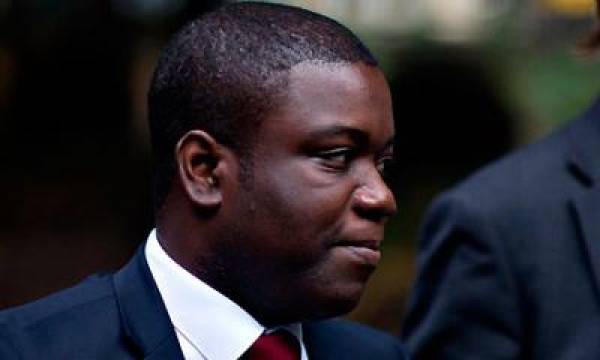UBS Rogue Trader Labeled as ‘Naked Gambler’

(Reuters) - Former UBS trader Kweku Adoboli put the Swiss bank's survival at risk through naked gambling that risked up to $12 billion, cooking the books and lying to his bosses until his "pyramid of fraud" collapsed, a British court heard on Friday.
Adoboli, 32, is on trial by jury in London accused of fraud and false accounting that in the end cost UBS $2.3 billion. He has pleaded not guilty.
Opening the case against him, prosecuting lawyer Sasha Wass said Adoboli's reckless and unhedged investments had been concealed by fictitious positions entered into UBS systems.
"At one stage, Mr Adoboli was in danger of losing the bank nearly $12 billion of unhedged investments," she said.
Had this occurred, such losses could have been fatal to UBS at a time when it was trying to recover from near collapse during the financial crisis of 2008.
Wass said Adoboli's motives were to increase his bonus, his status within the bank, his job prospects and his ego. She said his fraudulent deals had wiped 10 percent, or about $4.5 billion, off the Swiss bank's share price.
"Like most gamblers, he believed he had the magic touch. Like most gamblers, when he lost, he caused chaos and disaster to himself and to all of those around him," Wass told the jury.
"He was risking the very existence of the bank by gambling its resources, ultimately for his own benefit. In effect, Mr Adoboli had ceased to act as a professional investment banker and had begun to approach his work as a naked gambler.
"He had become what is sometimes referred to as a rogue trader."
Wass said he had confessed his dishonest behaviour in what she referred to as "the bombshell email" on Sept. 14, 2011 - the day that UBS became aware of his unauthorised positions.
"He had been sucked into the gambler's mindset and he started throwing good money after bad," she said.
Wearing a grey suit and a purple tie, Adoboli sat on a bench alongside his lawyers at the back of the courtroom. He did not sit in the glass dock because judge Brian Keith allowed him to be near his lawyers so they could speak and consult documents throughout the case which is likely to be lengthy.
The scene in court could not have been more different from a fast-paced trading desk full of men in sharp suits, computers showing live data streams and telephones buzzing.
Following British legal tradition the judge and lawyers wore white wigs and long robes. Telephones, cameras and recording devices were not allowed, and evidence was contained in huge piles of old-fashioned lever-arch files bulging with paperwork.
SETBACK FOR UBS
Adoboli was arrested at UBS offices in London in the middle of the night on Sept. 15, 2011, hours after the bank's management became aware of the scale of his unauthorised positions. He remained in custody until June 8, when he was freed on bail.
The episode knocked back UBS after it had been rescued by the Swiss government. It led to a management shake-up, a change of strategy, a tightening of internal controls and a reduced 2011 bonus round for some staff.
Adoboli's trial will be watched with keen interest by a banking sector scarred by years of bad publicity since the financial crisis began and wary of giving regulators more reasons to tighten rules governing the industry.
The British and Swiss financial regulators, the FSA and FINMA, said on Feb. 3 they were launching enforcement investigations into events at UBS. These are still going on.
Such investigations have sometimes resulted in fines and new regulatory requirements on banks.
Adoboli is the son of a retired United Nations diplomat from Ghana. He was educated at a private school in Britain and graduated from Nottingham University with a degree in e-commerce and digital business studies.
At the time of the alleged offences, he was working as a trader on the Exchange Traded Funds (ETFs) desk in London.
ETFs are financial instruments that allow holders to track indices rather than buying the underlying securities outright. They are a way for investors to gain exposure to markets that are illiquid or hard to access.
- By Estelle Shirbon and Michael Holden, Reuters News Service














